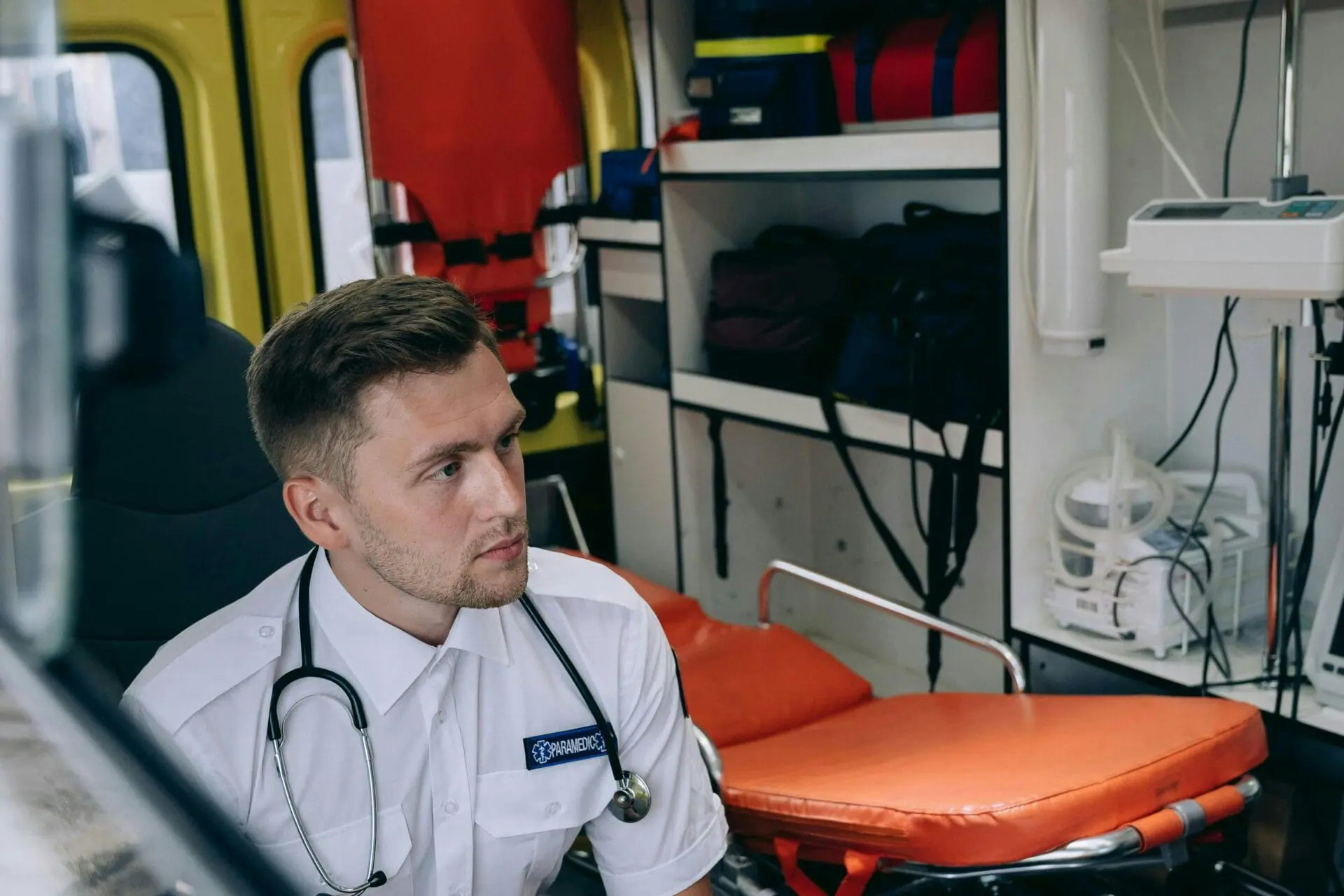
In 2024, Health Insurance detected and stopped a total amount of 628 million euros in fraud. Among these frauds, a significant part concerns documents falsified by actors external to hospitals. Who are these external actors who use false documents to get money with impunity? What are the consequences for hospitals? We take stock in this article.
In 2023, fraud in health transport represented nearly 150 million euros in damages detected by Health Insurance controls.
How do fraudsters go about it? A classic case is that of forged transport vouchers. The paramedics bill hospitals for fictional trips based on falsified travel vouchers.
These medical transport prescriptions (PMT) are signed by complicit doctors or obtained without rigorous control.
For example, between 2019 and 2024, a taxi driver from Var was judged for having defrauded nearly 2.3 million euros from various health insurance funds. She declared false health transports using fake PMTs. What were the consequences? Authorities seized assets worth 1.37 million euros. The courts also ordered a ban on working as taxi drivers for 5 years.
Medical equipment suppliers and service providers play a key role in the operation of hospitals. The problem? Some abuse their position to commit fraud.
Frauds consist of bill for equipment, devices or services not provided. Sometimes suppliers also inflate the price of bills illegitimately.
For example, a high-profile case in 2024 revealed that a supplier had invoiced a university hospital center for thousands of medical devices for an amount close to 500,000 euros. However, these devices were never delivered.
This scam has had a major impact on the institution's budget and forced the hospital to review its orders and internal controls.
According to Health Insurance reports for the year 2024, approximately 52% of fraud is committed by insured persons but they only represent 18% of embezzled financial amounts.
In other words, these scams are frequent but often involve smaller amounts than those of health professionals or suppliers.
However, these practices cost the health system several tens of millions of euros each year. The most common methods include:
To give you a common example, some patients produce falsified certificates to obtain reimbursement of hospital expenses or for extend a stay. These false documents lead to unjustified expenses and overload hospital administrative services.
These scams, even if they seem “individual”, weaken the system as a whole and complicate the management of admissions.
French hospitals are losing several hundreds of millions of euros every year because of the document fraud external.
These amounts could be reinvested in care, in the staff recruitment or in Innovation.
Beyond financial losses, fraud has consequences for quality and patient safety.
Equipment that is invoiced but never delivered can endanger care. In addition, fictitious transport delay access to urgent care.
Hospitals involved in fraud scandals are experiencing a loss of public trust.
In addition, in case of complicity or negligence, they may incur financial or criminal sanctions. A bad reputation can also reduce partnerships and funding.
To combat this rise in external document fraud in hospitals, several measures can be adopted.
First of all, it is essential to strengthen regular and cross-audits in order to detect inconsistencies in documents sent by external service providers. These checks make it possible to quickly identify anomalies, for example inflated invoices or fictional purchase orders.
At the same time, the training And the sensitization teams are essential. Les administrative agents must know how to identify warning signs: inconsistencies in supporting documents, anomalies in signatures or invoice numbers. One Culture of vigilance should also extend to external partners via clear contractual clauses.
Faced with this observation, it is becoming necessary for hospitals to turn to technological solutions.
Finovox is a platform based on artificial intelligence and mathematical algorithms. She analyzes automatically thousands of documents (invoices, transport vouchers, administrative files) for detect anomalies, such as duplicates, of inconsistencies or even forgeries.
Want to learn more about it? Contact our experts without further delay!